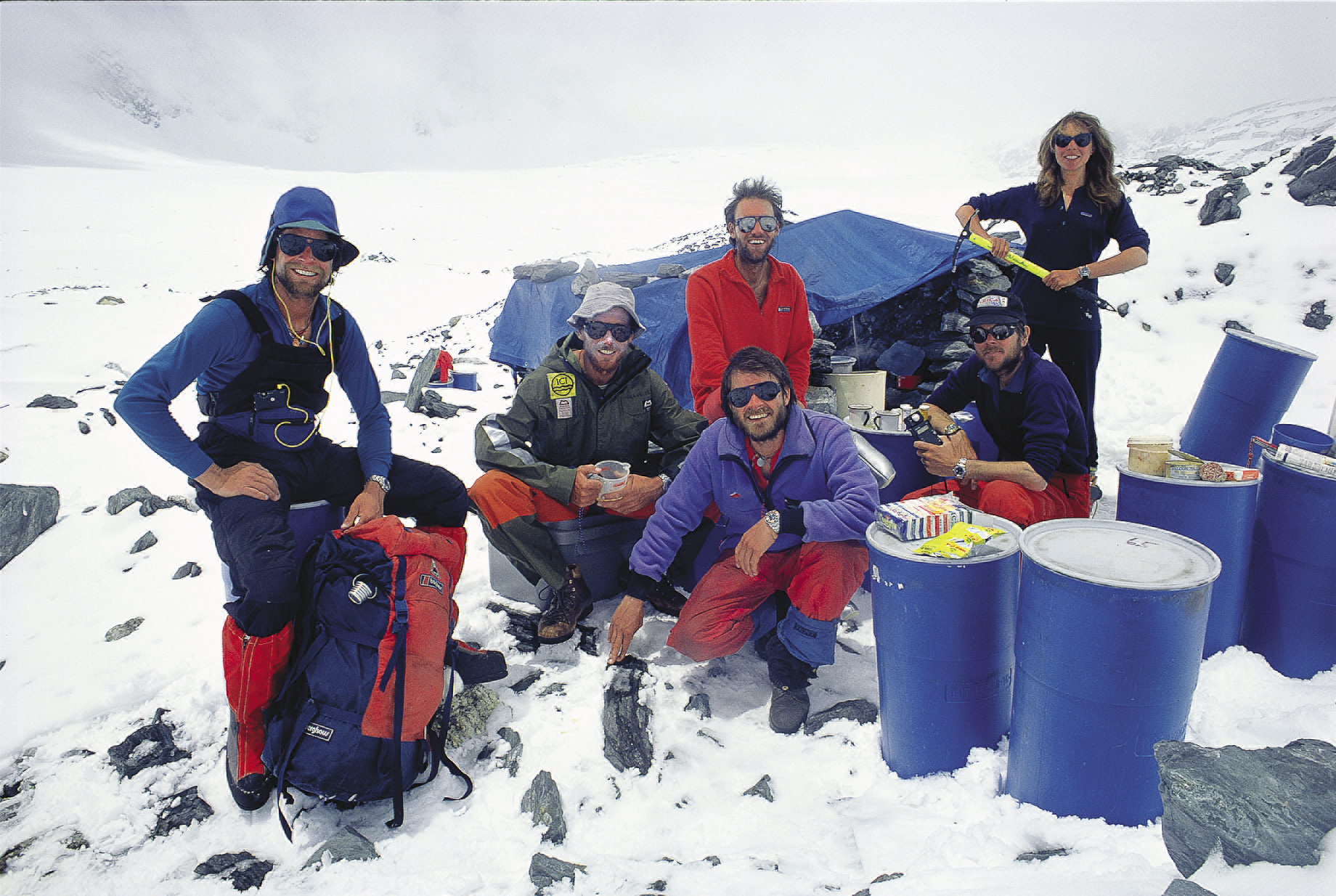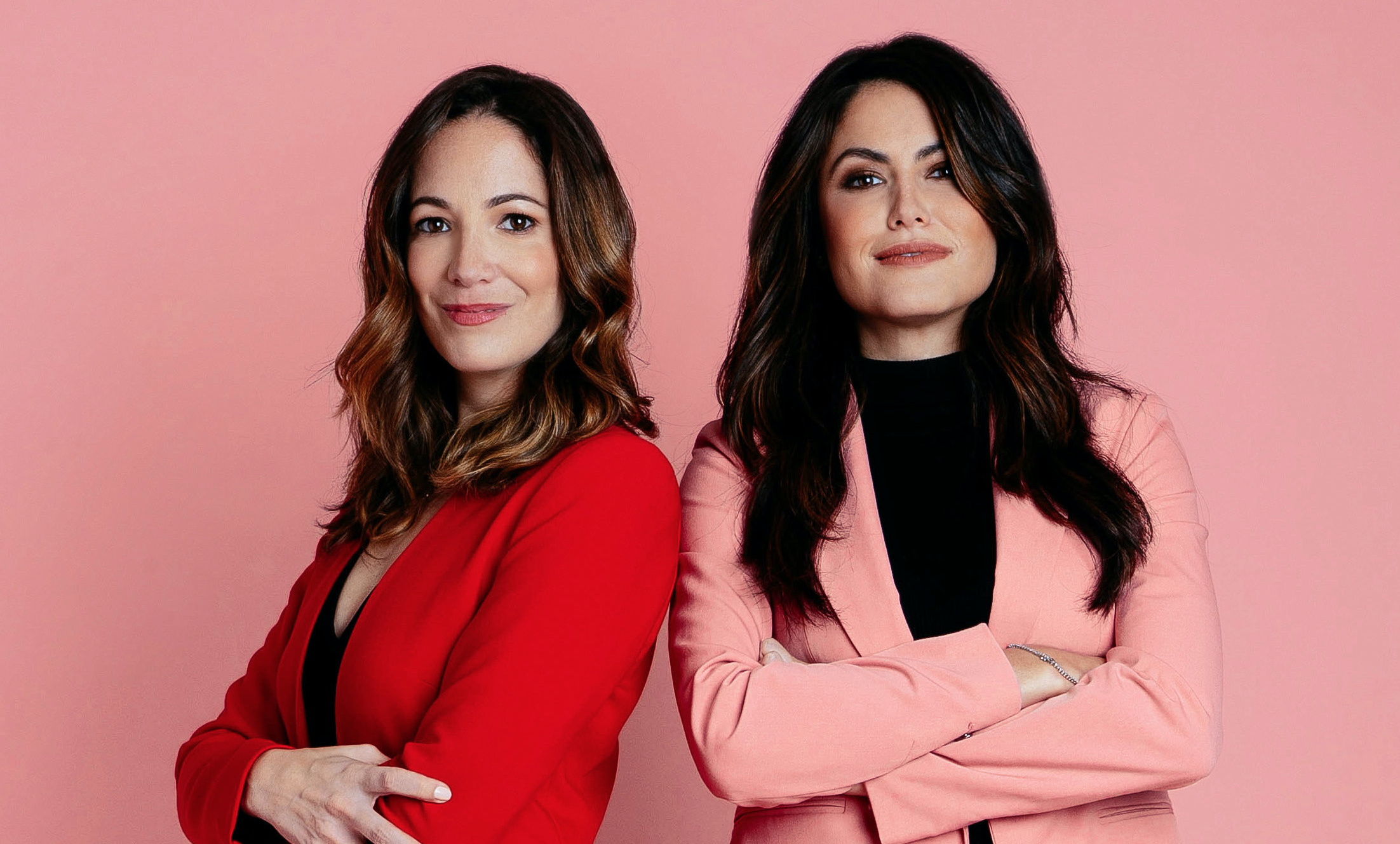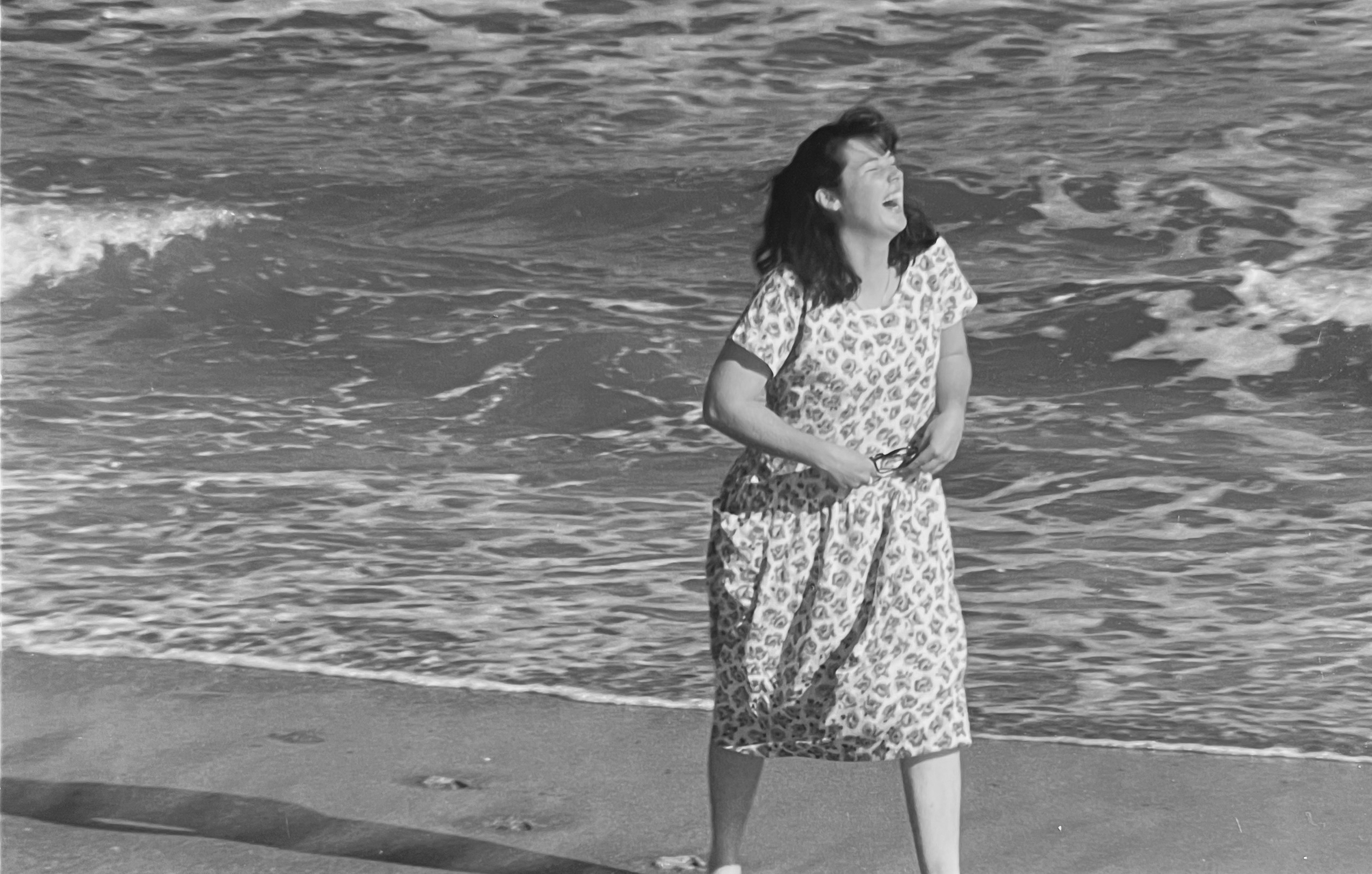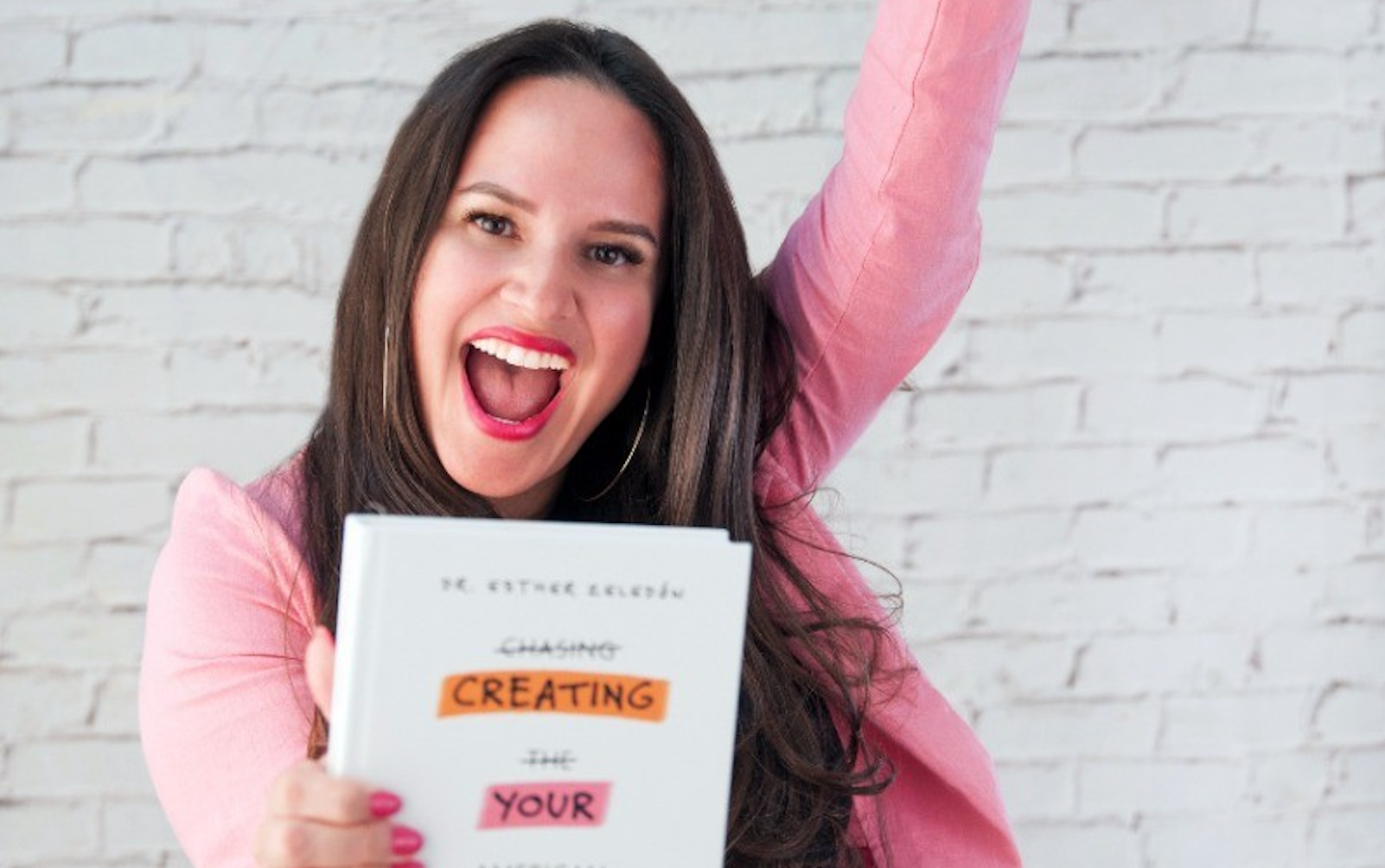
For many people across America today, healthcare is often described as the number one issue in their lives, which the COVID-19 pandemic underscored and exacerbated in numerous ways. For undocumented people, it becomes even more important when they don’t have equal access to information and resources, compounded by language and cultural barriers (not to mention the ongoing political debates).
For one high school student in Connecticut who has ties to the immigrant community through her own family, the issue of accessing healthcare and finding the right information how to do so was personal enough to motivate her to take action.
Jenny DiCapua is a Latina high school student in Connecticut who just launched an easily accessible healthcare directory for underserved communities in the Tri-State Area called Salud Por Todos (or Health for All). In the Instagram video below she shares her dad’s story of immigrating from South America to New York, and why the issue mattered to her so much that she’s dedicated her last 3 years in high school towards the research and development of the directory.
Why this matters today: Underserved communities, such as undocumented immigrants, face a multitude of barriers when seeking healthcare providers. This includes a language barrier (if they don’t feel comfortable with an English-speaking doctor), cost and payment methods (if they don’t have insurance), and lack of identification (if undocumented, they likely feel unsafe to go to a doctor that requires a government ID). This means that many communities do not seek proper healthcare when they need it, or that they end up having to go to the Emergency Room for noncritical issues, straining the system.
The Salud Por Todos app has filters for these top 3 concerns so that users can search for doctors in their neighborhood that speak Spanish or have a translator, accept cash or have a sliding scale or payment plan option, and/or do not require a government ID. Salud Por Todos can be found on the web or in the Apple or Google Play app stores. It’s available in both English and Spanish and app demos are available in both languages as well. The best part about the app is that it is free. With demo videos in both English and Spanish, Jenny is on a mission to change the landscape of healthcare access for undocumented immigrants in the Tri-State area.
We had a chance to speak to the busy entrepreneurial teen about her family story, why Salud Por Todos is a much-needed solution to a problem she knew she could help alleviate, and how she plans to grow the app in the coming years.
Congrats on the launch of Salud Por Todos! Can you tell us how the idea for the app first came about?
I came up with the idea of Salud Por Todos when I was a high school freshman, three years ago. The inspiration came from having grown up between two worlds with very stark differences. One is where I live and go to school. The second is New Rochelle, where my father lived after migrating to the United States as a child, and where I visited my grandmother growing up. New Rochelle is a mostly undocumented Latinx neighborhood and I noticed that my friends there struggled with untreated chronic illnesses, malnutrition, depression, and high levels of teenage pregnancy.
At the same time, I recognized that my parents were able to easily book and pay for my healthcare appointments and that overall my peers and I back home weren’t facing the same health challenges. I was disturbed by the inequity of these two worlds and that’s why I chose to do something about it.
The app is really geared to help undocumented Spanish-speaking immigrants. Why did you want to help this demographic specifically?
The Spanish-speaking immigrant population, especially if undocumented, faces a multitude of barriers while attempting to access healthcare in the U.S. These include language, lack of healthcare insurance, costs, citizenship status, and transportation. While there are some healthcare providers that attempt to break down these barriers, they are limited, oftentimes underfunded, and hard to find.
In addition, the current political climate makes it difficult for immigrants to access safe and effective healthcare. While there are some existing resources to help this population, a lack of access and fear remain a serious problem. Therefore, I created Salud por Todos in a way that allows Spanish-speaking immigrants to search for a doctor that fits their needs from the safety of their phones, anonymously.
Can you tell us more about healthcare access in the NY tri-state area and how immigrants are able (or unable) to access it?
Only a handful cities in the United States offer health insurance to the undocumented, and they’re not eligible for Federal healthcare programs, like Medicare or Medicaid. And due to immigration policy changes that took place during the Trump administration, many immigrants are afraid to apply to the few programs or policies that do exist. Therefore, many forgo regular checkups and preventative treatment, and must resort to emergency rooms for dire situations.
Unfortunately, finding healthcare resources that break down the barriers the Latinx community faces is incredibly difficult since there is no central database to highlight such institutions. Finding centers that help this population takes a lot of web searching and word-of-mouth recommendations. My research found that the Latinx community is very comfortable using smartphones to access data so I believe a smartphone app is a feasible way to allow users to filter physicians that fit their needs.

We’d love to learn more about your dad’s story as an immigrant from South America. How did this impact your life growing up, and become part of the people you are helping today?
When my father immigrated to the United States from South America as a child, his family settled in an apartment in New Rochelle, New York. Growing up, he would tell me stories of how hard it was to find good healthcare. For example, the system failed to provide him with all the necessary vaccinations, so he was exposed to Pertussis (whooping cough) which is rarely seen in the U.S. He got very sick and had to be quarantined by the Department of Health for over 6 weeks. This was a formative experience in his life that fueled his interest in medicine.
Similarly, most of his fellow tenants were immigrants from Spanish-speaking countries. As I grew up, I spent countless days visiting my grandmother and I became close friends with the other tenants and their children. As I got older, I heard about the healthcare challenges they faced due to barriers that included English being their second language
There are lots of opinions about healthcare in general – whether it should be a human right, or whether your access should depend on your status. What is your take on this, given your family background and the app you created?
My personal opinion is that access to basic healthcare is a human right. The United States has many systems in place to protect members of society from undue suffering. Healthcare is a fundamental tool that can prevent suffering or at least minimize it when unavoidable. It seems hypocritical that an immigrant can call 911 once they have an emergency, but they do not have a simple way to access healthcare to avoid the emergency in the first place.
I also believe that providing a basic level of healthcare is prudent for society at large. For example, many immigrants were unable to get vaccinated during the COVID-19 pandemic, resulting in high infection rates. This infected population becomes a vector for spreading the disease to all of society. Further, untreated diseases often lead to worsening outcomes that require emergency treatment or more advanced treatment. There is a cost to society for this catchup. An article in Forbes states that delays in proper healthcare results in a cost to society of $18.5 billion per year. Therefore, a basic level of healthcare for all is not only humane but economically crucial for society.
How does the app work, and what can users search for?
While creating Salud por Todos, I recognized the importance of anonymity. First and foremost, this application allows the user to search for healthcare resources without having to enter their personal information like name, email, or phone number. To make this abundantly clear, and build trust, the app immediately opens to a page with sections including, About Us, Privacy Policy, and Disclaimer. After reading these sections, the user can filter providers by location, gender, speciality, payment method, language support, and ID requirement. Every result shows them providers who are verified to meet the search criteria.
Surprisingly, there is no standard database in the United States that lists all providers with their basic information. Some Department of Health websites allow a user to find physicians but often just one at a time. Further, much of the data available on these websites is voluntary so there is no strict monitoring for accuracy or completeness. Even hospital systems that employ physicians fall prey to outdated information or lack of vital information.
Salud por Todos is an attempt to set the basic level of information that a patient would want to search for when seeking a provider. The data is first extracted from publicly available sources and then improved by verifying sources. Ideally I would like to expand the database to include more regions and serve multiple different languages. To do this would require building a team of data scientists. I believe this is achievable with proper funding.

Why is an app like Salud Por Todos important in today’s healthcare landscape? And what are the barriers facing underserved communities that your app can help people navigate?
The United States has a highly developed but complex healthcare system. To navigate it successfully, there needs to be a resource that lists all available providers with their basic information. Access to healthcare begins here. This is particularly important for underserved communities who may value certain criteria like languages spoken or available payment methods. The inability to search at this foundational level, often leads to delayed care, overuse of emergency rooms, or using a provider that the patient is not entirely comfortable with.
In addition, cultural sensitivity is critical to good healthcare. It is key that patients find providers that understand their beliefs because patients who feel a connection with their doctor are more likely to follow their doctor’s recommendations. Imagine a patient who sees a physician that challenges their values. This hypothetical patient is much less likely to follow the physician’s recommendations. Given that patient compliance is already a known problem, providing a patient with a physician who is culturally sensitive to their background becomes very important.
When I began Salud por Todos, I created a survey to better understand the barriers Latinx immigrants face while accessing healthcare. My research uncovered that barriers include, language, inability to pay, lack of insurance, transportation, and fear of deportation. Salud por Todos provides information so a patient can navigate the above barriers as they see fit.
You are in high school and have spent the past 3 years developing this app. What are some things you have learned along the way as an entrepreneur?
My high school’s Science Research program helped me understand how to create a hypothesis, plan a project, and execute on the plan. And, to create Salud por Todos I have been exposed to many entrepreneurial principles. I had to learn about corporate law to create my own LLC, interface with many professionals like attorneys, computer scientists, marketing specialists, and healthcare experts, develop a survey to better understand my target audience, and create an app that meets the needs of the target population.
Currently, I am at the stage of marketing Salud por Todos so I’m learning about communication and media tools that can help me spread awareness. This project has always been a community service mission but even charitable projects need an entrepreneurial spirit to create a successful product that the target population will use. I feel that I have learned much about product development that will serve me in the future as I go to college and enter other entrepreneurial missions.
How have your friends reacted to/supported your endeavors?
As a young entrepreneur, support from my family and friends has been integral to my journey. I am beyond thankful for those that offer a word of encouragement, give helpful feedback, and provide advice. Many people understand the importance of access to healthcare because we are all patients at some point. I think the tangible nature of this project has fueled people in providing great advice and support for this project. But, there is one moment specifically where I knew my work was making a real impact.
A couple of months ago while I was in the process of developing Salud por Todos, I was speaking to a member of the Latinx community in New Rochelle, New York and she told me that she needed to find a new healthcare provider. She explained how it was important to her that her doctor was a Spanish speaker and within close proximity to her home. After hearing this, I showed her Salud por Todos and allowed her to search for a provider that fit her needs. After searching, she was able to find a doctor that worked best for her and she proceeded to make an appointment the next day. This moment was incredibly impactful for me because it gave me hope that all users of Salud por Todos will be able to easily use the app to break down the barriers they have faced in the past.
This moment gave me a boost of enthusiasm to continue my work and make Salud por Todos accessible for all. But, unfortunately, I have also been exposed to the very polarized debate surrounding equal access to healthcare. Working on this project has taught me how to navigate this complex social issue.
What’s next for you after you leave school? Do you have plans to create more apps or expand Salud Por Todos?
My passion for Salud por Todos grows daily. After graduating high school, I will continue my work by expanding the database to include more regions across the country. One of the great aspects of Salud por Todos is that anyone can use the application to find a healthcare provider. In the future, I hope to add more filters that include multiple languages. This would allow immigrants from non-Spanish-speaking countries to break down the barriers they face as well. This process would require gathering a team of data scientists, but I believe that this is possible with proper funding.
You can learn more about Jenny DiCapua and Salud por Todos by visiting the website, or following them on Instagram.

















